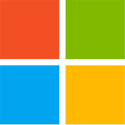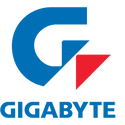OpenAI Names Emmett Shear as CEO, Sam Altman Joins Microsoft and Drags Hundreds of Employees With Him
On Friday, the AI world was caught by storm as the board of directors of OpenAI, the maker of ChatGPT and other AI software, fired its CEO, Sam Altman. According to multiple sources reporting the state of OpenAI, Sam Altman was stunned by the board's decision of his removal, where the company published a public statement with many remarks, primarily informing the public that "Mr. Altman's departure follows a deliberative review process by the board, which concluded that he was not consistently candid in his communications with the board, hindering its ability to exercise its responsibilities. The board no longer has confidence in his ability to continue leading OpenAI."
After Sam Altman's leave, Greg Brockman, president and co-founder of OpenAI, announced that he was also leaving the company. Satya Nadella, CEO of Microsoft, and other investors have stepped in to lead negotiations between the OpenAI board and Sam Altman to return to his position as the CEO of the non-profit company. However, according to The Information, Sam Altman will not be returning as the CEO, and instead, Emmett Shear will be appointed as the interim CEO of OpenAI. It is also reported that the departure of Sam Altman is now being followed by three senior researchers, Jakub Pachocki, Aleksander Madry, and Szymon Sidor, who have left the company to follow Sam Altman's next adventure. They wanted to go back to OpenAI if Mr. Altman would return; however, with Emmett Shear now being appointed as interim CEO, the company is in shambles with its senior staff employment in question.Update 15:30 UTC: Sam Altman has joined Microsoft alongside Greg Brockman to lead Microsoft's advanced AI research efforts; additionally with hundreds of OpenAI staff wanting to do projects under Sam Altman's lead. Apparently there are 700 members of staff, and 505 of them plan to follow Mr. Altman and Mr. Brockman under Microsoft's wing.
After Sam Altman's leave, Greg Brockman, president and co-founder of OpenAI, announced that he was also leaving the company. Satya Nadella, CEO of Microsoft, and other investors have stepped in to lead negotiations between the OpenAI board and Sam Altman to return to his position as the CEO of the non-profit company. However, according to The Information, Sam Altman will not be returning as the CEO, and instead, Emmett Shear will be appointed as the interim CEO of OpenAI. It is also reported that the departure of Sam Altman is now being followed by three senior researchers, Jakub Pachocki, Aleksander Madry, and Szymon Sidor, who have left the company to follow Sam Altman's next adventure. They wanted to go back to OpenAI if Mr. Altman would return; however, with Emmett Shear now being appointed as interim CEO, the company is in shambles with its senior staff employment in question.Update 15:30 UTC: Sam Altman has joined Microsoft alongside Greg Brockman to lead Microsoft's advanced AI research efforts; additionally with hundreds of OpenAI staff wanting to do projects under Sam Altman's lead. Apparently there are 700 members of staff, and 505 of them plan to follow Mr. Altman and Mr. Brockman under Microsoft's wing.

























































